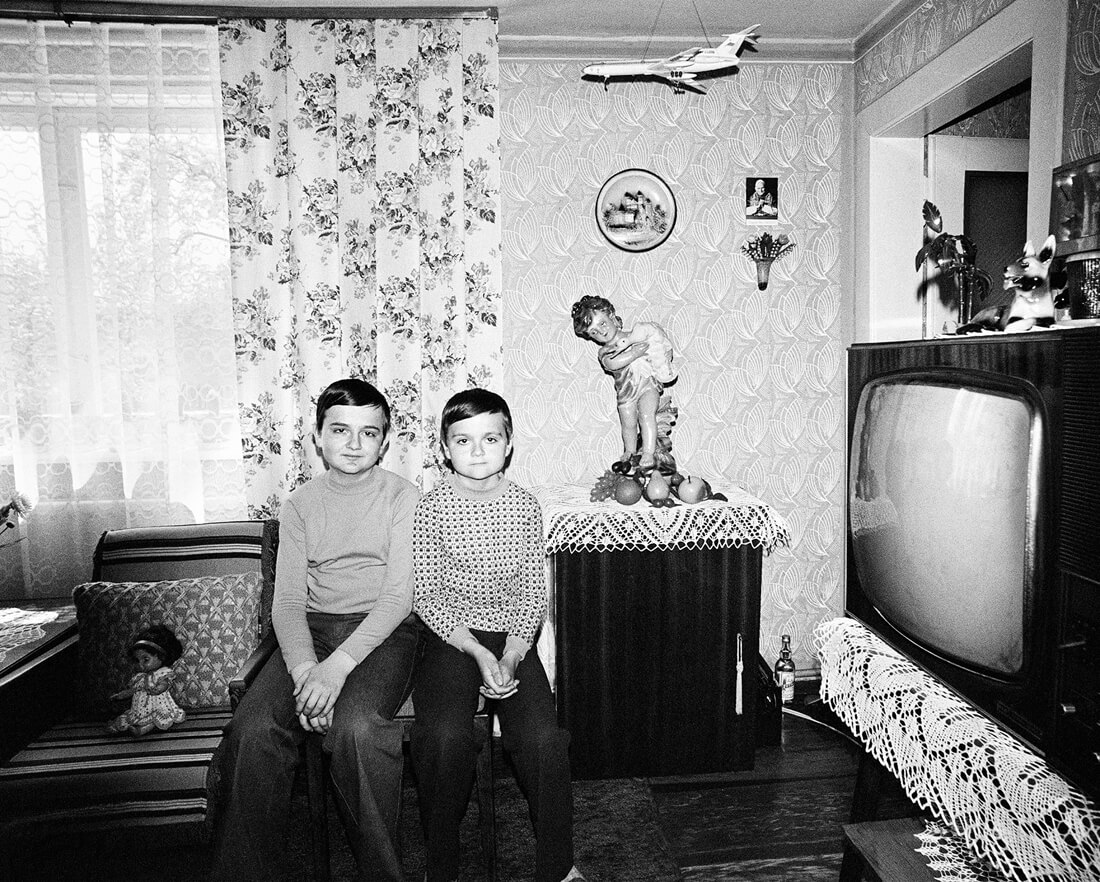
Courtesy Fondation Zofia Rydet.
© Musée d’Art Moderne, Varsovie, Pologne
Portrait filmé
Zofia Rydet
En 1978, alors âgée de 67 ans, la photographe polonaise Zofia Rydet (1911-1997) entreprend le projet monumental : Répertoire sociologique. Ce corpus regroupe quelque 20 000 photographies réalisées dans plus d’une centaine d’agglomérations polonaises, villes et villages principalement situés dans les régions de Podhale, de Haute-Silésie et de la ville de Suwałki.
Malgré le très grand nombre d’expositions consacrées à son travail, Zofia Rydet a longtemps occupé une place à part dans les milieux de la photographie polonaise, dominés à l’époque par ses confrères masculins et leur inclination artistique conceptuelle.
Présentée au musée d’Art moderne, à Varsovie en 2015, l’exposition est née de l’ambition de reconstituer une exposition n’ayant jamais vu le jour : fondée d’une part sur des indications extraites des notes et de la correspondance de Rydet, elle ajoute d’autre part une dimension contemporaine au travail de la photographe par le recours aux technologies actuelles, notamment avec un certain nombre de tirages inédits.
Intitulée « Zofia Rydet. Répertoire, 1978-1990 », cette exposition rétrospective rassemble près de 300 tirages modernes issus de trois séries : Répertoire sociologique, Femmes sur le pas de la porte et Professions.
“Zofia Rydet. Record, 1978-1990” offers the presentation of Zofia Rydet’s monumental photographic project Sociological Record. The artist began the development of the cycle in 1978 and continued almost until her death in 1997. Rydet began working on the cycle at an advanced age (when she was sixty-seven years old) as an established artist with a considerable exhibition portfolio. At the same time she occupied a separate position in the Polish photographic milieu, dominated at the time by male photographers and conceptual tendencies.
Sociological Record abounds in contradictions – rather than a cycle of research or inventory photography (as the title, originally provided by Urszula Czartoryska suggests), it is a total project that sits within the tradition of intuitive artistic atlases and catalogues. Hence the title of the exhibition, which omits the “sociological” aspect of the series: record is regarded as a method that escapes the rules of a scholarly inventory. Aware of the impossibility of completing her work and documenting all Polish houses (in the 1980s, Sociological Record was expanded to include photographs taken in Lithuania, France, Germany, and the United States, where the artist concentrated mainly on the apartments of Polish emigrants), Rydet engaged with her work with growing zeal and impatience; often, she seldom returned to the previously gathered negatives. She also started to visit the same houses after several years or more than a decade after her original visit, in an attempt to document the transfor-mation of the rural areas of Poland.
